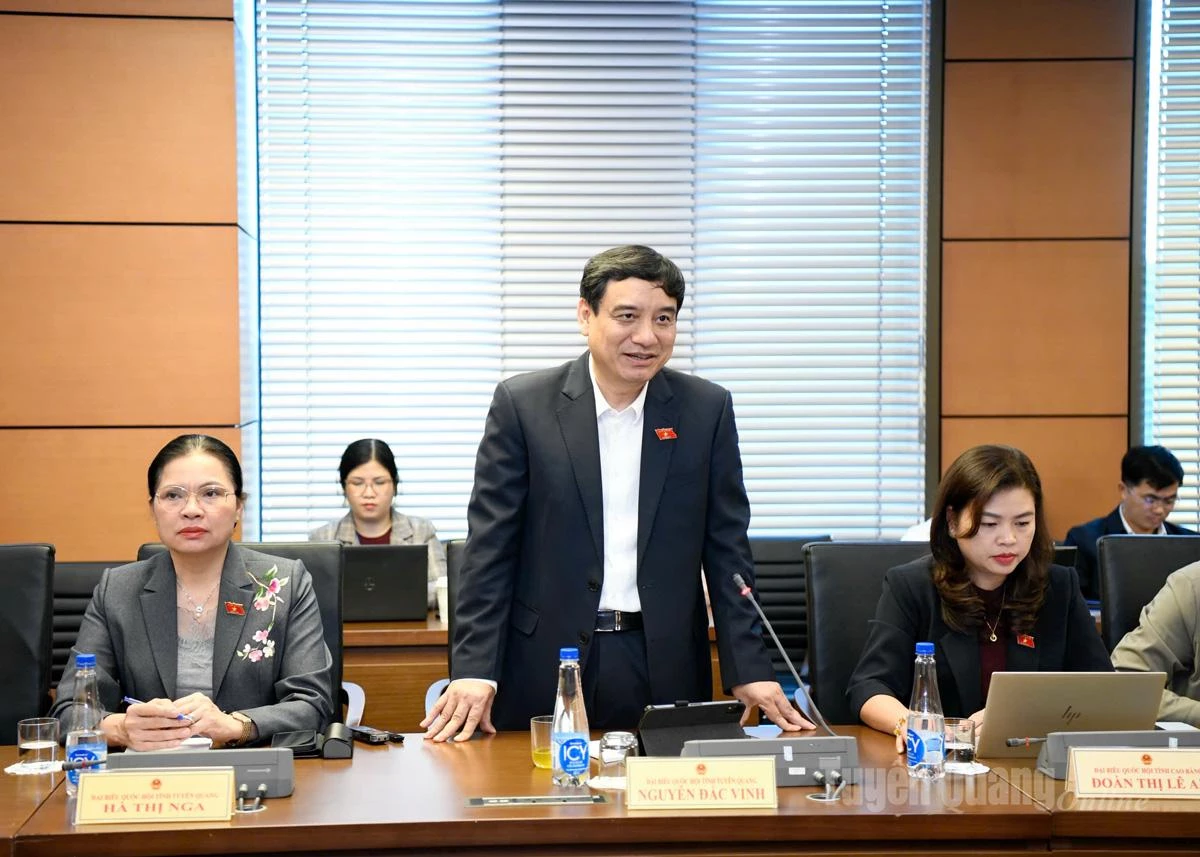 |
| Delegate Nguyen Dac Vinh spoke during the discussion. |
Participating in the group, delegate Nguyen Dac Vinh, member of the Party Central Committee, Chairman of the National Assembly 's Committee on Culture and Social Affairs, suggested that it is necessary to clarify some issues on the development and use of high-quality human resources - one of the three strategic breakthroughs identified by the 13th National Party Congress.
According to the delegate, in the past time, we have focused a lot on the "training" stage, while not really paying due attention to "attracting and utilizing talents". Many developed countries have succeeded thanks to open and flexible policies in attracting global experts and talents; Vietnam can completely learn and apply them appropriately to practical conditions. The delegate suggested that relevant ministries and branches should soon build and perfect specific institutions, mechanisms and policies to attract and utilize talents, in which special attention should be paid to the team of intellectuals, experts and businessmen who are Vietnamese overseas with international qualifications and experience to contribute to the country.
Regarding training, delegates suggested that there should be a clear strategy for streamlining, strengthening vocational education , and linking vocational training with general education so that students can orient their careers early and have practical skills. In the context of rapidly changing technology and production, workers must be retrained regularly to adapt flexibly to market needs. Therefore, it is necessary to have a long-term vision, prepare early and synchronously deploy solutions to create substantial changes in the coming period.
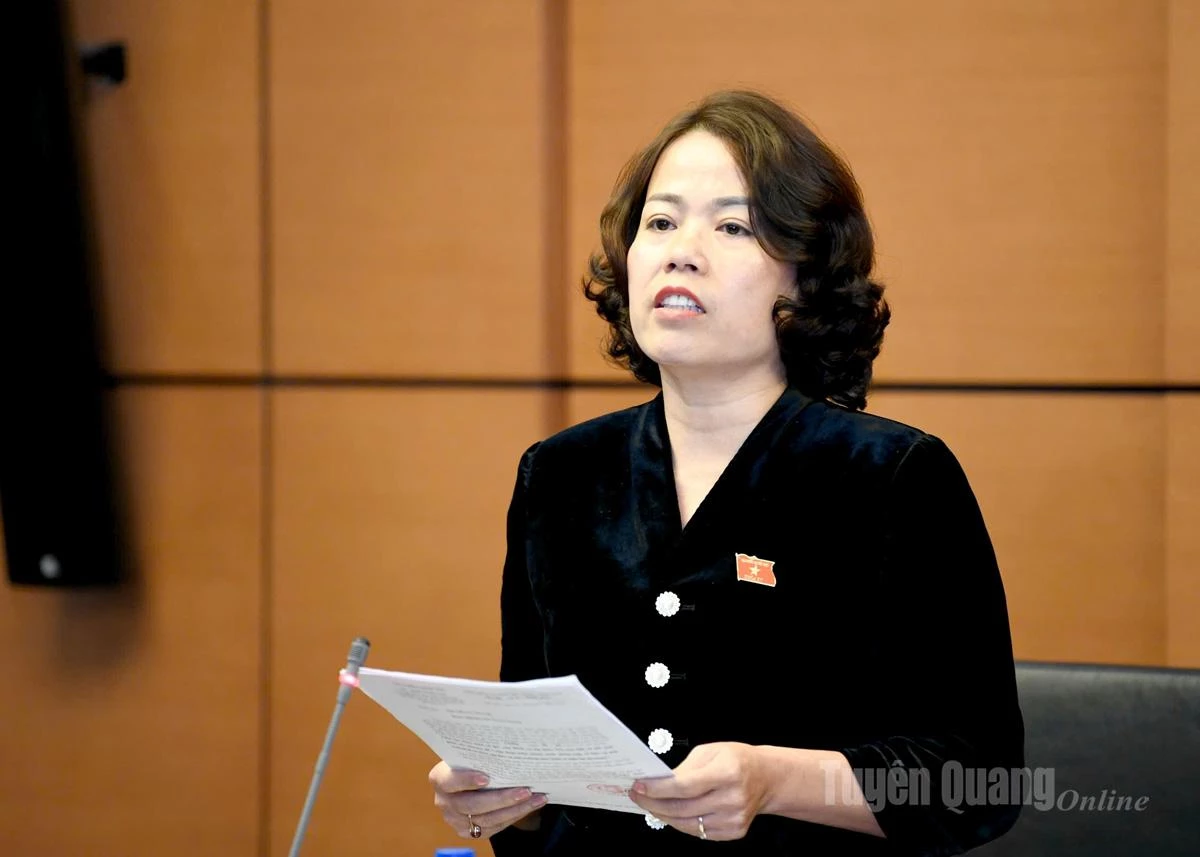 |
| Head of the National Assembly Delegation of the province Ly Thi Lan spoke at the discussion. |
Participating in the draft Document of the 14th National Party Congress, delegate Ly Thi Lan, member of the Provincial Party Standing Committee, Head of the Provincial National Assembly Delegation, emphasized that the draft Document has identified science , technology, innovation and digital transformation as one of the strategic breakthroughs and central development pillars of the coming period. This is a new strategic approach, considering digital transformation as the "backbone" of productivity growth and national competitiveness.
The main breakthrough contents also affirm the central role of science, technology and innovation. Therefore, it is necessary to perfect institutions, mechanisms and outstanding policies for science and technology, remove barriers in management, finance, and autonomy of scientific organizations; at the same time, perfect the legal framework on intellectual property, data sharing and protection mechanisms. Linking science and technology development with the innovation ecosystem; building a chain of links between research institutes, universities, enterprises and venture capital funds to form a national innovation network.
The delegate expressed that currently, the legal system has not kept up with the rapid development of new digital business models such as cross-border platforms and sharing economy; regulations on taxes and social insurance for workers in the digital economy are still unclear, causing difficulties for management and business operations. In addition, human resources in information technology, data analysis and network security are still lacking, while cloud computing infrastructure, open data, 5G networks are not synchronized... In addition, the fear of electronic transactions, the habit of using cash, high digital transformation costs along with limitations in thinking and corporate culture make the transformation process slow. The digital gap between urban and rural areas and between population groups is also a factor that needs special attention to ensure the comprehensiveness and fairness of the digital transformation process.
Delegates proposed 6 key groups of solutions: Completing the legal corridor for the digital economic model, amending and promptly promulgating important laws such as the Law on Electronic Transactions, the Law on Personal Data Protection, the Law on Network Information Security, ensuring a transparent and healthy business environment. Strengthening coordination between sectors and localities, building a unified coordination mechanism for digital economic development, avoiding overlaps, minimizing financial barriers, reforming administrative procedures, supporting businesses, especially small and medium enterprises in the digitalization process. Ensuring network security, protecting personal data, improving the capacity to respond to cyber attacks, strengthening social trust in the digital economy. Building a transparent support and management mechanism, ensuring businesses have equal access to capital, land and technology. Strengthening international cooperation, participating in international treaties and standards on the digital economy, facilitating cross-border e-commerce.
The Head of the Provincial National Assembly Delegation also proposed to continue to clarify the Party's leadership role in developing ethnic minority and mountainous areas. In recent times, many major resolutions such as Resolution No. 71-NQ/TW dated August 22, 2025 of the Politburo on breakthroughs in education and training development; Resolution No. 72-NQ/TW dated September 9, 2025 of the Politburo on a number of breakthrough solutions, strengthening the protection, care and improvement of people's health, or national target programs; temporary housing elimination program, program to build 100 inter-level boarding schools in border communes have created clear changes, people "see, feel and measure" the changes.
Therefore, it needs to be more clearly defined in the 14th Congress Document with three focuses: The Party leads by results, by changing people's lives through Resolutions; it is necessary to strongly shift from support mechanisms to providing opportunities - that is, persistently implementing solutions to help people gain knowledge, skills and sustainable livelihoods. At the same time, create a special mechanism for educational, health and staff resources for mountainous and border provinces, considering it as investment for sustainable development, not social security.
PV
Source: https://baotuyenquang.com.vn/thoi-su-chinh-tri/tin-tuc/202511/dbqh-tinh-gop-y-van-kien-dai-hoi-dai-bieu-toan-quoc-lan-thu-xiv-cua-dang-3620746/


![[Photo] Opening of the 14th Conference of the 13th Party Central Committee](https://vphoto.vietnam.vn/thumb/1200x675/vietnam/resource/IMAGE/2025/11/05/1762310995216_a5-bnd-5742-5255-jpg.webp)





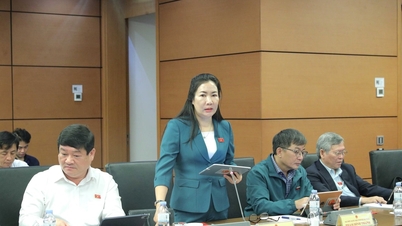

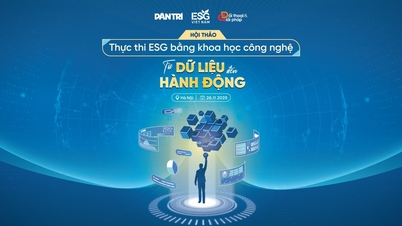

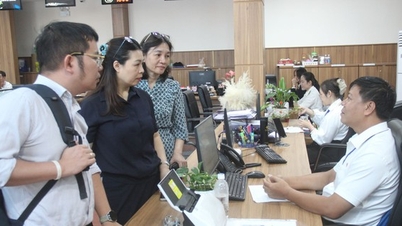



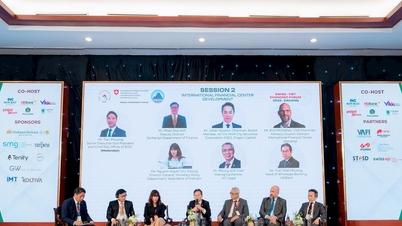


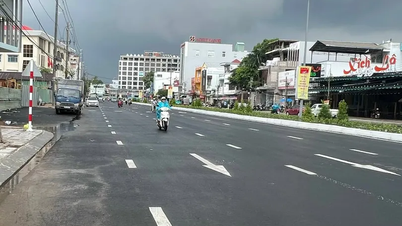

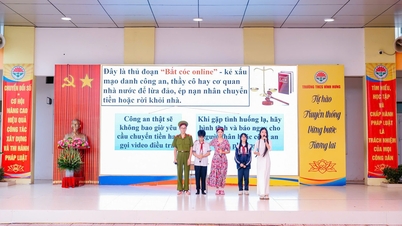



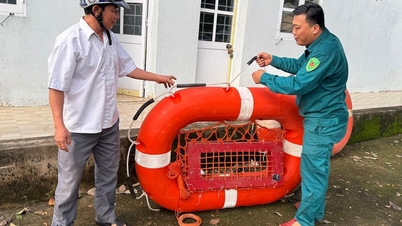


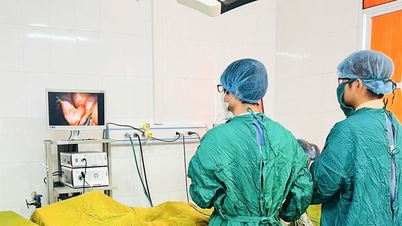





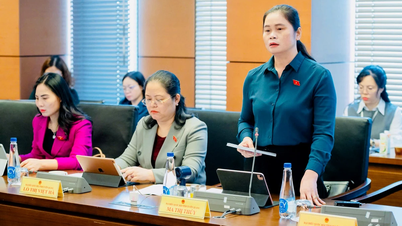

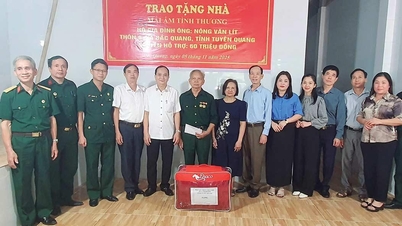
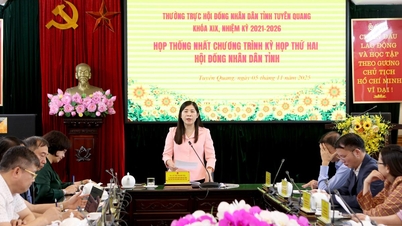
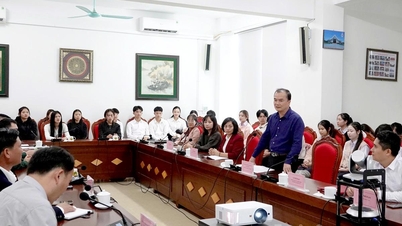
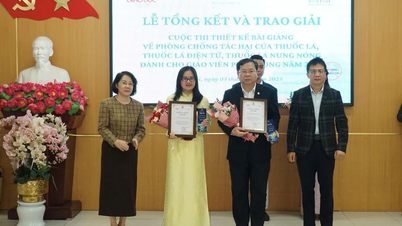

![[Photo] Panorama of the Patriotic Emulation Congress of Nhan Dan Newspaper for the period 2025-2030](https://vphoto.vietnam.vn/thumb/1200x675/vietnam/resource/IMAGE/2025/11/04/1762252775462_ndo_br_dhthiduayeuncbaond-6125-jpg.webp)


































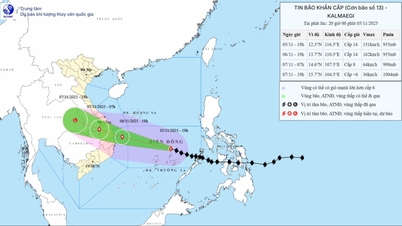













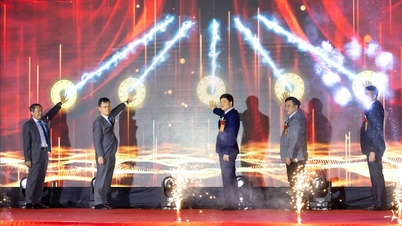
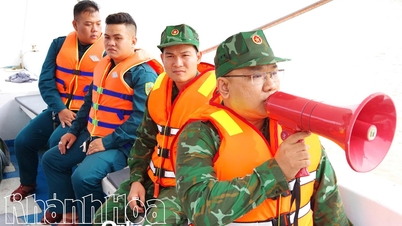

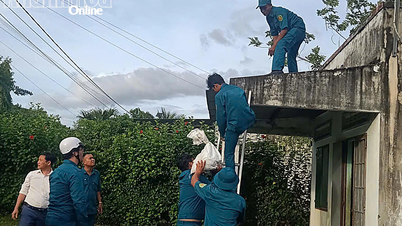

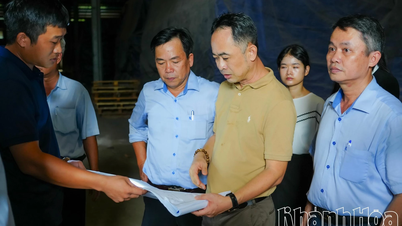










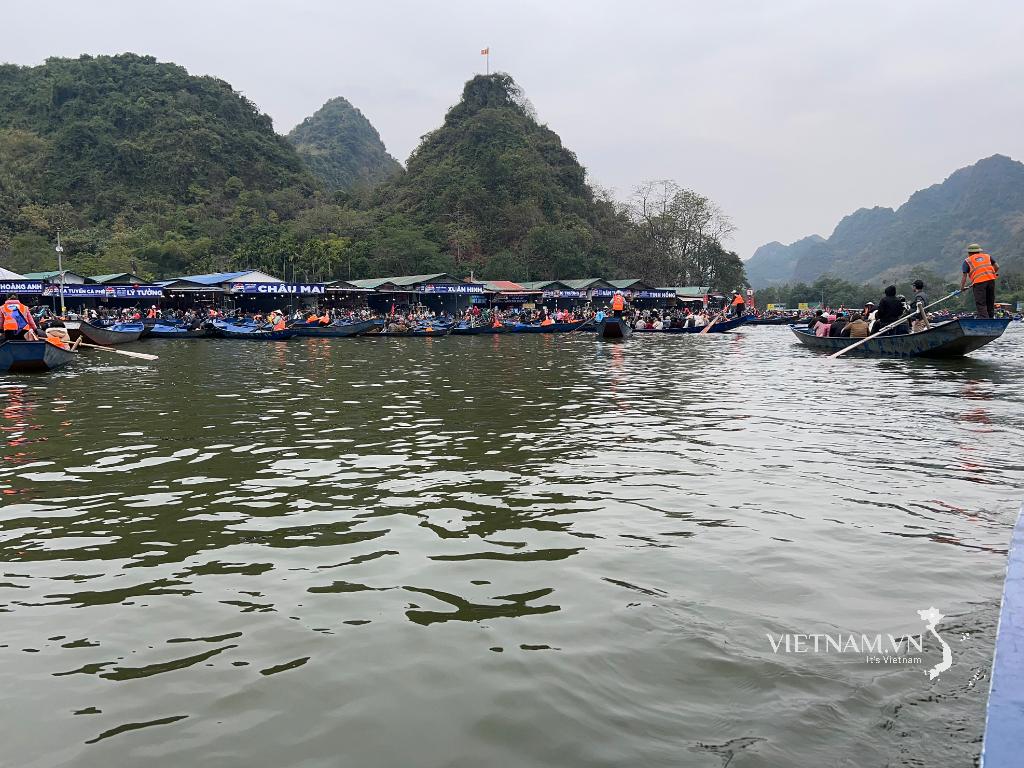



Comment (0)